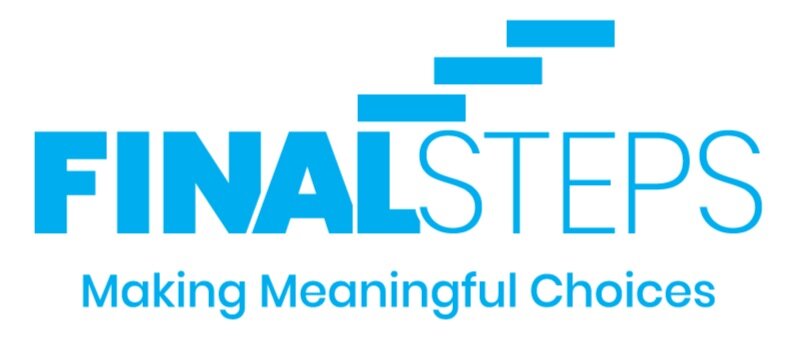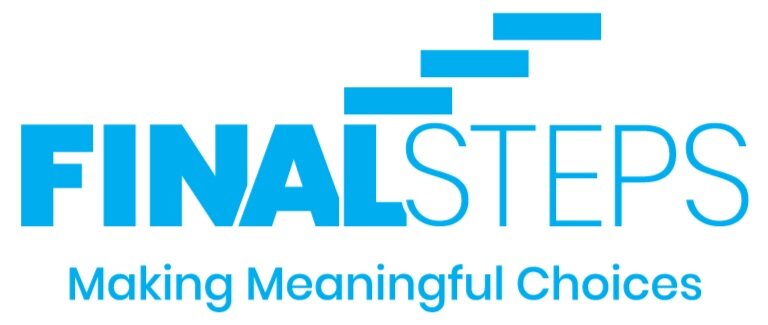
TOOLKIT
Starter Kits
The Conversation Project® offers excellent booklets to download for step-by-step help for having conversations about end of life care with family, talking with your doctor, talking with a seriously ill child, for use with dementia patients and for faith groups.
Note: Parts of these guides reference US State and Federal laws which do not apply in Bermuda. Contact Final Steps for details and clarification.
Available in Portuguese:
Como escolher um representante de cuidados de saúde E Como ser um representante de cuidados de saúde
New Resources
What Matters To Me
The “What Matters to Me” Workbook was jointly created by Ariadne Labs and The Conversation Project to help people with a serious illness think through and talk about what matters most to them – to make sure they get the care they want. After completing the Workbook and talking it over with someone close to you, the next step is to talk with your health care team (doctor, nurse, social worker, etc.) so they understand what’s most important to you.
See our How To Talk To Your Doctor guide for useful advice.
Being Prepared in the Time of COVID-19
We can’t control how this pandemic plays out. But we can control who speaks for us if we’re unable to speak for ourselves, and we can take the time to make sure they know what matters most to us. Have this conversation today.
Advance Directives
Advance directives are written documents that serve several purposes:
They speak for you during times when you are unable to speak for yourself.
They allow you to describe the type of medical treatment you wish to receive.
They identify someone close to you as the person you wish to be a decision-maker for you if you are unable to do so.
It is important that you discuss, document and share your advanced directives with your family, your GP or medical team, and the person you wish to be your healthcare decision maker.
In Bermuda there is no specific law for advanced directives, however it is an important and fundamental standard of practice respected by health care practitioners, if consistent with other professional and legal standards. Many people include or refer to their advanced directives within their will as a 'living will'.
See our ‘Other useful tools’ section below for resources to help you document your advanced directives.
Other useful tools
The Stanford Letter Project
Easy-to-use templates in the form of letters to help you think through your priorities and choices and share them with the people you love.
PREPARE
PREPARE is a step-by-step programme with video stories to help you have a voice in your medical care, talk with your doctors, and fill out an advance directive form to put your wishes in writing.
MyDirectives.com
MyDirectives.com guides you through medical choices, and records your wishes. Instantly accessible from your cell phone. Companion mobile app also available.
Cake
Explore, document and share all your health, legal, funeral and legacy decisions in a free end-of-life plan.
“People have concerns besides simply prolonging their lives. Surveys of patients with terminal illness find that their top priorities include, in addition to avoiding suffering, being with family, having the touch of others, being mentally aware, and not becoming a burden to others. Our system of technological medical care has utterly failed to meet these needs, and the cost of this failure is measured in far more than dollars.
“The hard question we face, then, is not how we can afford this system’s expense. It is how we can build a health-care system that will actually help dying patients achieve what’s most important to them at the end of their lives."
— Atul Gawande, author of Being Mortal






